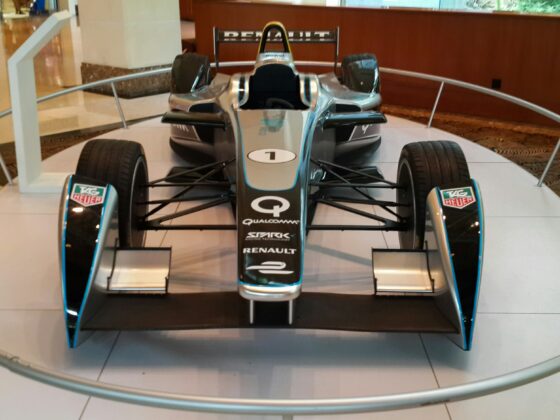
A new study by Access Hospitality – an HSMAI Europe organizational member – reveals fragmentation is costing Europe’s hospitality sector thousands of hours, and millions in missed
opportunities. The findings paint a stark picture of inefficiency:
- 47% of hotel operators use 2-4 systems, 25% use 5+ systems
- Hoteliers lose 322-470 hours per year switching between them
- 13-19% of operating costs are wasted on inefficiency and duplication
- 60% of businesses say their data is incomplete or unreliable
- 50% of operators say it is hard to trace where data comes from
- 70% say real-time consolidated data would aid faster decision making
- 83% struggle with stock control, 56% miss upselling opportunities
- 57% of consumers say tech has improved their hospitality experience
In an exclusive HSMAI Europe interview, the company’s General Manager for the Accommodation software company within Access Hospitality, Nicola Longfield, explains how integration and smarter data use can help hoteliers regain efficiency and reconnect with guests.
Across Europe, hotel operators are fighting a common battle: too many systems, too little time. Access Hospitality‘s latest report, AI in the Hospitality Sector, reveals that just a quarter (24%) of hospitality businesses operate on a single system. The rest juggle between two and five, often more, with 25% using five to 10-plus!
The consequences are striking. Hotels are losing hundreds of hours each year switching between unconnected systems, the equivalent of more than a month of work. In the UK and Ireland, the average loss is 286 hours per year, while Switzerland, Germany and Austria are hit even harder, with Swiss hoteliers reporting losses of up to 470 hours per manager annually. The result is inefficiency, higher operational costs, and missed opportunities to connect with guests
The sheer downstream impact from these fragmented systems is what stood out to me. It’s not just the cost; it’s what that time loss means for your guest experience. Managers are spending hours fighting with technology instead of doing what they love; serving guests. Nicola Longfield, General Manager for Accommodation at Access Hospitality speaking to HSMAI Europe about the research findings
The sheer downstream impact from these fragmented systems is what stood out to me. It’s not just the cost; it’s what that time loss means for your guest experience. Managers are spending hours fighting with technology instead of doing what they love; serving guests. Nicola Longfield, General Manager for Accommodation at Access Hospitality
Integration: the missing link between data and decisions
While fragmentation slows down operations, it also erodes trust in data. According to the report, 60% of businesses say their data is incomplete or unreliable, while half admit they can’t trace where their data comes from, slowing down decision-making and action taken.
Many operators lack data confidence
, explains Longfield. They can’t be sure the information they’re using is accurate, so they double-check everything manually, wasting more time. Building a single data source of truth is fundamental.
Her advice? Start with the basics. Focus on your property management system (PMS) – the engine of the operation – then build outwards,
she says. That foundation enables better forecasting, stock management, and ultimately, guest experience.
Across the industry, 70% of operators agreed that having real-time, consolidated data would dramatically improve their ability to make fast and confident decisions, particularly during peak trading periods.
The human cost of disconnected systems
Fragmentation doesn’t only affect finances; it affects people too. Operational inefficiency leads to frustration and burnout, especially when staff have to bridge gaps between disconnected systems.
The challenge is that hotels often don’t have the time or headspace to invest in fixing this,
Longfield says. Leaders need to see that integration isn’t about adding more tech but simplifying the tech you already have. It’s about freeing up your people.
This is particularly true across markets like Germany, Austria and Switzerland, where many properties remain independent or family run and rely on smaller, less integrated systems compared with global chains. For many of these operators, the opportunity is huge,
she notes. Integration could release hundreds of hours each year for guest-facing work.
AI in action: empowering, not replacing
Access Hospitality‘s research found that 57% of consumers feel technology has improved their hospitality experience. And when it comes to AI, more than half believe it could lead to faster customer service and 45% say it would provide more accurate information or recommendations.
In the UK, 35% of consumers said AI would create a better experience than staff in hospitality, but more than half (53%) still preferred the human touch. The message, therefore, is clear: guests want both efficiency and empathy.
AI should be seen as an enabler, not a replacement,
says Longfield. When used correctly, it complements human service, automating routine admin so staff can focus on guests.
Operators currently see the biggest benefits of AI in forecasting, reporting, inventory control and scheduling, the operational foundations that directly impact service, Longfield continues.
For instance, 56% of hospitality operators admit to missing upselling opportunities because of stock shortages, a problem AI and integrated systems can help prevent through real-time visibility and smarter forecasting.
How to start the integration journey
Nicola Longfield’s advice to hospitality leaders is clear and pragmatic: take small, strategic steps that deliver tangible results.
- Start with integration: Connect your core systems first, particularly the PMS, before layering in additional tools.
- Go for quick wins: Pilot AI or automation in time-saving areas such as rota management or reporting.
- Build data confidence: Create one reliable version of the truth to guide commercial decisions.
- Empower your teams: Provide training that shows staff how technology simplifies their roles rather than replaces them.
- Think scalability: Choose technology that can evolve with your business needs, not lock you into legacy systems.
- Keep the human touch: Use technology to free people to focus on guests, not to replace the personal connections that define hospitality.
A final word
Longfield believes integration and AI together represent a turning point for hospitality. It’s about using technology to give time back to the people who make this industry special,
she says. That philosophy underpins the Access Hospitality’s ongoing innovation, with its Access Evo solution using AI to integration hotel systems. It’s designed to make technology work quietly in the background, so hospitality stays human at the forefront.
About the report
The ‘AI and Integrated Systems in the Hospitality Sector’ report aimed to better understand people’s attitudes towards AI within the hospitality space, and where it is falling short. Access Hospitality surveyed 1,000 businesses currently working in the hospitality industry, alongside 8,000 consumers aged 18+ across the UK, USA, DACH region, Australia, Indonesia and India to get a balance of both consumer and business-led views. To read the full report, click here






